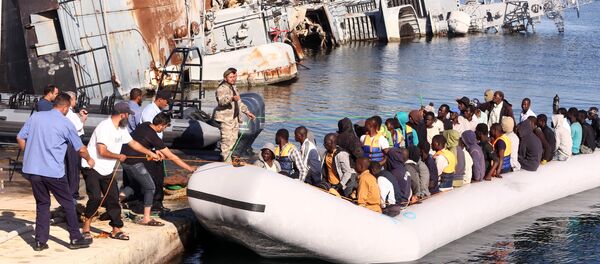Renzi will meet with German Chancellor Angela Merkel, European Council chief Donald Tusk, European Commission leader Jean-Claude Juncker and European Parliament head Martin Schulz on Thursday before fronting a joint press conference responding to the many challenges facing the EU.
.@JunckerEU in #Rome with @MartinSchulz @eucopresident for tomorrow's #CharlemagnePrize award ceremony to @Pontifex pic.twitter.com/sTUJuaxz91
— Margaritis Schinas (@MargSchinas) May 5, 2016
The meeting comes amid fears Italy will be at the forefront of the migration crisis this summer, following the signing of the EU-Turkey agreement, which effectively closed the so-called Balkan migrant route.
With the flow of refugees and migrants entering Greece effectively coming to a standstill, there are fears people smugglers will look to exploit security lapses in North Africa and transport people across the Mediterranean Sea to Italy.
These concerns have been backed up by figures showing that 28,500 new arrivals have come to Italy since the beginning of the year, with fears the country may face a dramatic increase in migrant arrivals during the European summer.
Closing Borders and Quota Rejections
Renzi is keen to keep EU borders open and promote an EU-wide solution to the migration crisis as Italy fears it may suffer a similar fate to Greece and become isolated if neighboring countries close their borders.
These concerns come amid Austria's plan to enforce more stringent border control on the Brenner Pass, which links Italy to northern Europe.

While Austria says the measures are simply being put in place to protect its own borders, critics have accused Vienna of breaching the EU's Schengen open-border zone and failing to help other member states.
The Rome talks also come after the European Commission's recently announced proposals to fine member states that do not take part in refugee relocation quotas.
The disagreement has highlighted the huge divide across the bloc when it comes to the issue of immigration and the migration crisis, with many states flatly rejecting the idea of a refugee relocation system.





